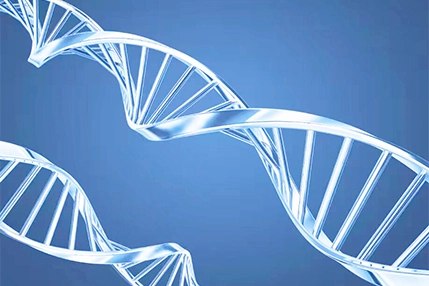As the field of genomics continues to advance, there is a growing emphasis on developing sustainable practices within the realm of DNA sequencing. One area of particular interest is the synthesis and application of dideoxynucleotide triphosphates (ddNTPs), where efforts are underway to implement eco-friendly strategies. This passage explores the evolving landscape of "Green Sequencing," focusing on sustainable approaches in both the synthesis and application of dideoxynucleotide triphosphates.
Sustainable Synthesis of Dideoxynucleotide Triphosphates
Bio-based Precursors
Traditionally, the synthesis of dideoxynucleotide triphosphates involves the use of chemical precursors that may contribute to environmental pollution. Green approaches advocate for the use of bio-based precursors derived from renewable sources. Utilizing sustainable feedstocks not only reduces the environmental impact but also aligns with the principles of green chemistry.
Catalysis and Energy Efficiency
Green synthesis of dideoxynucleotide triphosphates places a strong emphasis on catalytic processes and improved energy efficiency. Employing catalysts that are both effective and environmentally benign can significantly reduce the overall energy consumption of the synthesis. Sustainable synthesis methods aim to minimize waste generation and enhance the overall eco-friendliness of the process.
Waste Reduction Strategies
The conventional synthesis of dideoxynucleotide triphosphates often results in the generation of chemical by-products that may pose challenges in waste management. Green sequencing initiatives focus on waste reduction strategies, such as the development of closed-loop processes and the utilization of more selective reaction conditions. These innovations aim to minimize the environmental footprint of ddNTP synthesis.
Sustainable Applications in DNA Sequencing
Reducing Solvent Usage
In DNA sequencing applications, the use of dideoxynucleotide triphosphates is integral to the Sanger sequencing method. Green sequencing approaches explore ways to reduce solvent usage during both the synthesis and application of dideoxynucleotide triphosphates. This not only contributes to environmental sustainability but also enhances the economic viability of large-scale sequencing processes.
Recycling Strategies
To address the environmental impact of discarded sequencing materials, researchers are exploring recycling strategies for dideoxynucleotide triphosphates. Developing methods to recover and reuse dideoxynucleotide triphosphates from sequencing reactions can significantly minimize waste generation. These recycling initiatives align with the broader goals of sustainability in genomics research.
Integration with Sustainable Technologies
Green sequencing extends beyond the properties of dideoxynucleotide triphosphates to encompass the entire sequencing workflow. Integrating sustainable technologies, such as energy-efficient sequencers and environmentally friendly reagents, further enhances the ecological profile of DNA sequencing. This holistic approach reflects a commitment to sustainability throughout the entire genomics research process.
Future Prospects and Challenges
Innovation in Green Chemistry
The pursuit of green sequencing relies on ongoing innovations in green chemistry. Researchers and industry experts are exploring novel reactions and methodologies that not only enhance the sustainability of ddNTP synthesis but also contribute to the broader goals of environmentally friendly genomics research.
Balancing Sustainability and Performance
While sustainability is a key objective, it is essential to strike a balance between eco-friendly practices and the performance requirements of DNA sequencing. Green sequencing initiatives must ensure that any sustainable approach adopted does not compromise the accuracy, efficiency, or cost-effectiveness of sequencing technologies.
Green sequencing represents a paradigm shift in the synthesis and application of dideoxynucleotide triphosphates, aligning genomics research with the global imperative for sustainable practices. As advancements in green chemistry continue to unfold, the integration of eco-friendly approaches in the synthesis and use of dideoxynucleotide triphosphates holds great promise for the future of DNA sequencing, offering a pathway to a more sustainable and environmentally conscious era in genomics.

 En
En Cn
Cn



